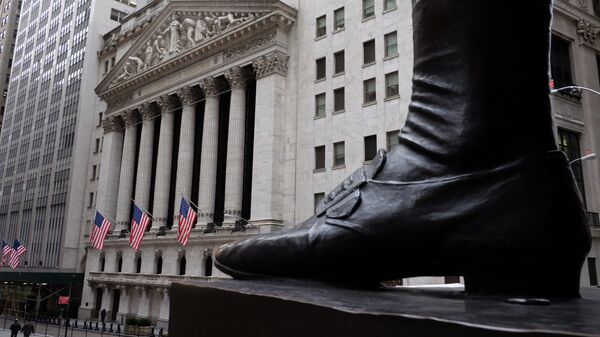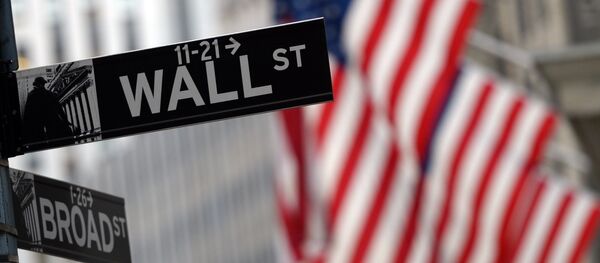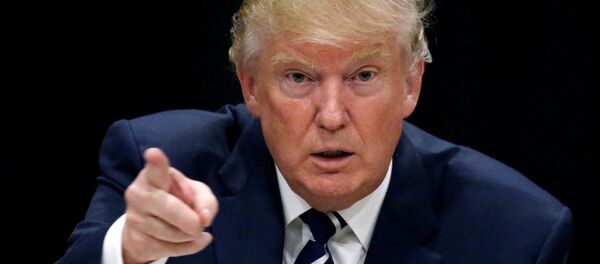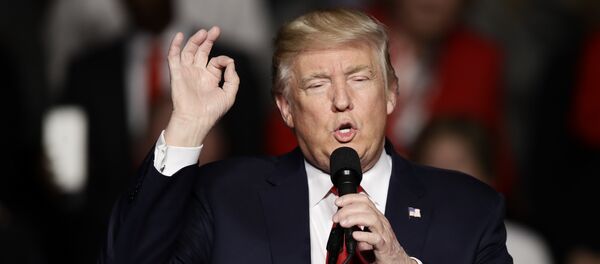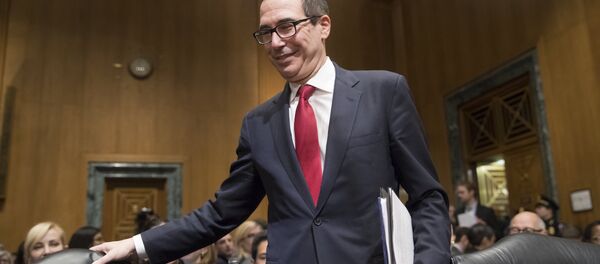Yet, the Dow's surge might be short-lived should the real economy fail to perform accordingly. The 4Q16 growth figures are due on Friday, January 27, and, most likely, the US GDP grew about 2.2pc for the past year, well below earlier projections of above 3pc. The GDP expansion, however, might have been spurred by the election of Donald Trump as US President, resulting in higher consumer confidence, yet, there are insufficient macro data that would allow to determine whether the stock market gains have a solid footing in the form of a robust economy.
"With a swift move towards signing executive orders, coupled with underlying positive economic data, clarity has begun to hit the headlines, and all the US indexes are celebrating," Quincy Krosby of Prudential Financial Inc. said. "Clarity is the markets' oxygen."
However, the massive advance of the Dow to roughly 200 points above its past record highest posted in 2009, bears some alarming signs. As investor demand for equities soars, it might pass the point of overheating, where the abundance of cash inflow results in a flash crash in the stock market.
"Once retail comes in, that's the time to get out." – Michael Purves of Weeden & Co. said. Another concern is, after the negligible GDP expansion in the first two quarters of 2016, the Dow might have been already overvalued by 15-20pc, particularly so, given the declines in corporate earnings during the same period. The post-election stock market gains are simply stemming from the higher market confidence of Trump and his proposed policies. Still, there is little to show for it, as Trump has only started his presidential term.
Meanwhile, the US dollar declined against the basket of its peers despite the optimism surrounding corporate earnings and the stock market situation. This is an indication of lower confidence of the US economy amongst foreign investors, and is also a fair warning to stock investors: don't be overexcited about the Dow.
"The problem that the greenback is having right now is twofold – first, Trump has been talking down the currency and second, his policies make foreign investors nervous," Kathy Lien of BK Asset Management said. "Until the market comes to terms with the risk/benefits of Trump policy, the dollar may have a tough time mimicking the one-way moves in stocks and bonds."
The upcoming economic reform, meanwhile, supported by the massive fiscal stimulus, will inevitably produce greater volatility in the market. Particularly so, when the Trump administration will enact its planned protectionist tariffs or "border tax" – many companies will take time to evaluate the likely effects of such a move. This means the stock market will take a blow, and the current expansion is hardly a sustainable one.
"Hedge on any potential downdraft in the stock market," Rich Weiss of Los Angeles-based American Century Investments said.
Also, albeit corporate profits have slightly recovered after Trump's election, supported by the slight devaluation of the dollar and the recovery in oil prices, the overall economic situation is very volatile. Market participants are prone to turn bearish and defensive should even a minor disturbance occur, and Trump's plan for economic reform is a rather significant disruptive factor.
